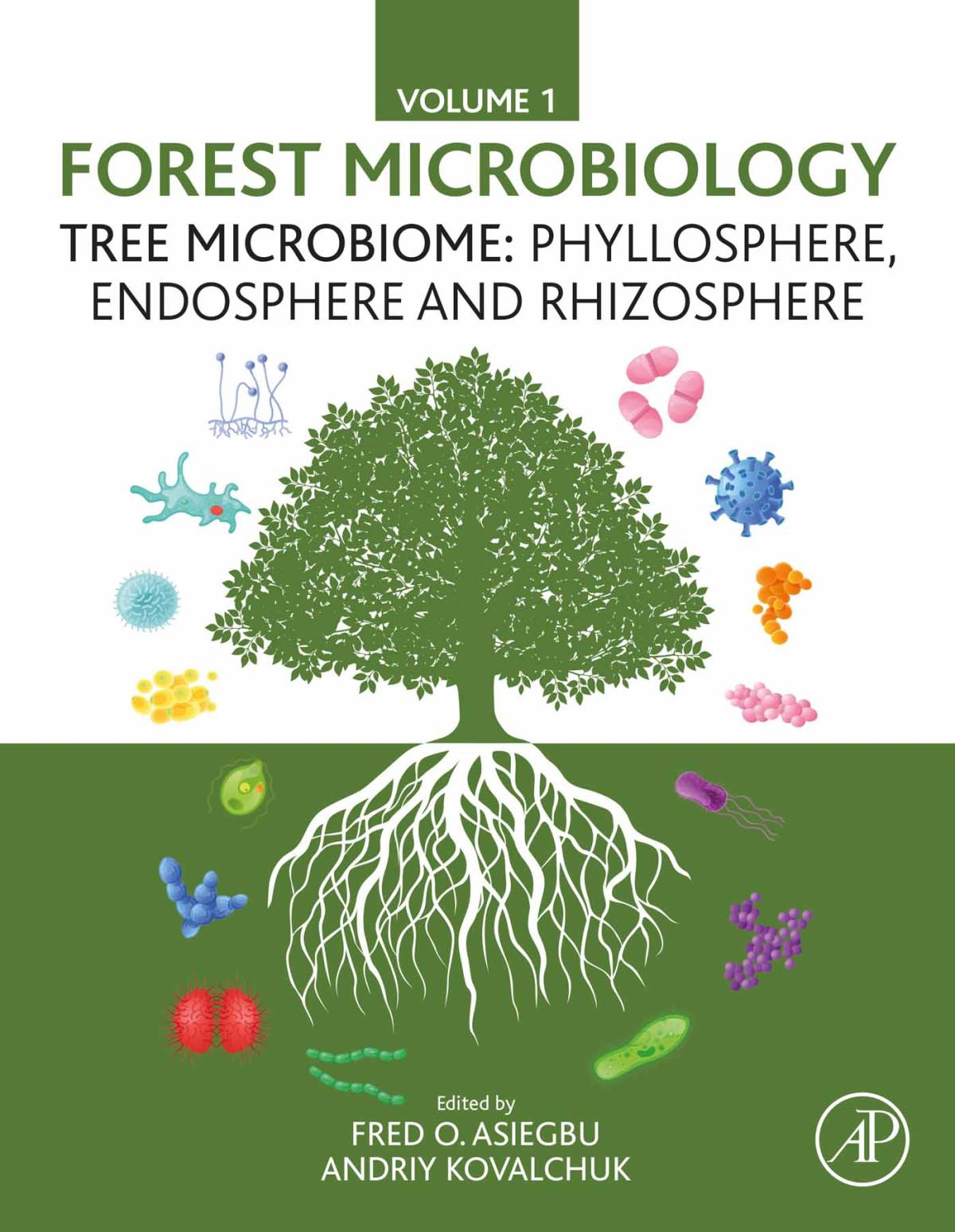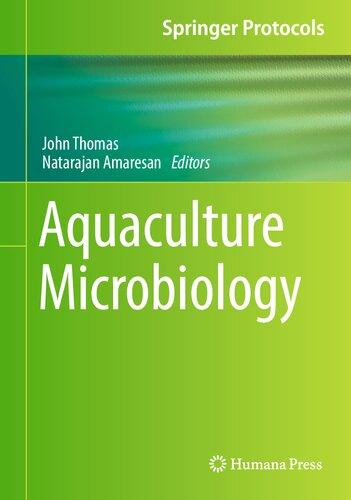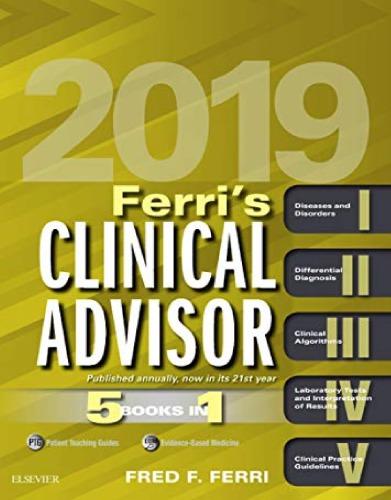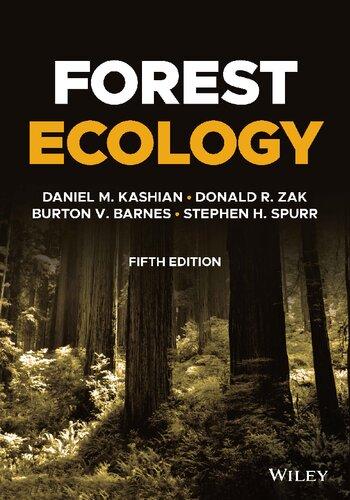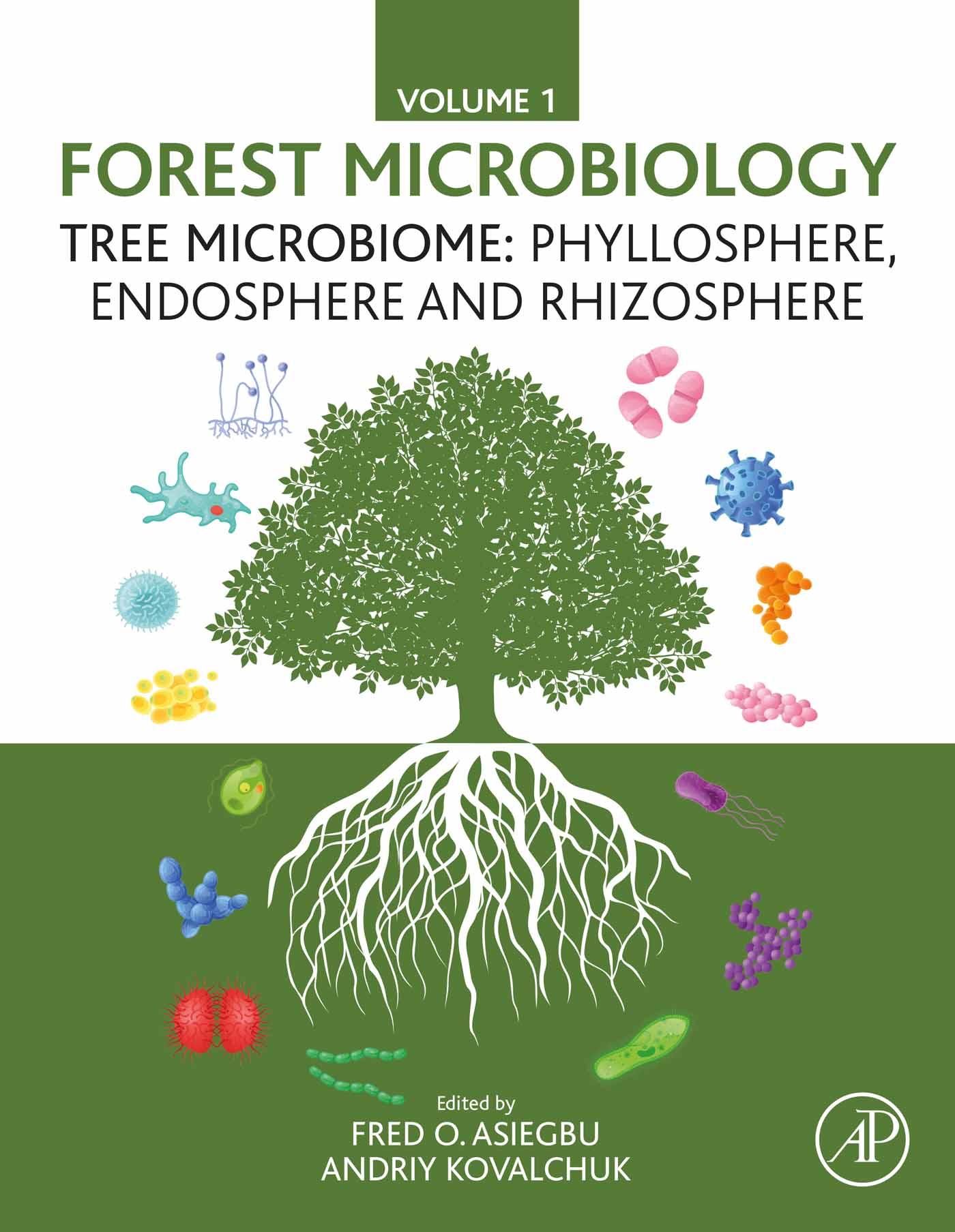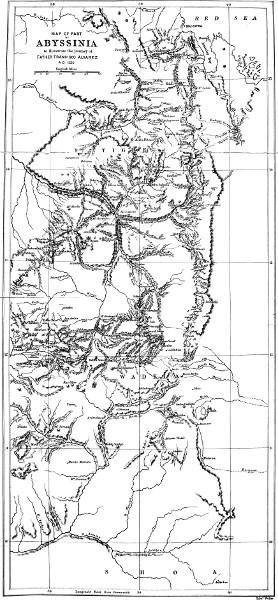Table of Contents
Cover image
Title page
Copyright
Contributors
Preface
Section A: Introduction
Chapter 1: An introduction to forest biome and associated microorganisms
Abstract
1: Introduction
2: Forest biome
3: Forest trees and their symbionts
4: Microbiome: The three domain system
5: Fungi: Morphological and structural features
6: Bacteria
7: Protists
8: Viruses
9: Ecology, biochemistry, physiology, and biotechnological features of microorganisms
10: Lifestyles of microbiome
11: Lifestyles of bacteria, archaea, and protists
12: Coevolution of plants (trees) and their microbial symbionts
Chapter 2: Wood as an ecological niche for microorganisms: Wood formation, structure, and cell wall composition
Abstract
1: Introduction
2: Wood formation
3: Principles of wood anatomy
4: Ultrastructure of wood cell walls
5: Chemical characteristics of wood cell walls
6: Future perspectives
Chapter 3: Methods for studying the forest tree microbiome
Abstract
1: Introduction
2: Traditional methods for studying phyllosphere and endophytic microbiota
3: Biochemical methods (microbiota—bacteria and fungi)
4: High-throughput or next-generation sequencing: Principles, concept, and applications
5: Data analysis: Clustering, sequence identification, and operational taxonomic units
6: RNA-seq and DNA GeoChip for microbiome analyses
7: Metagenome and metagenomics
8: Choice of methods for microbiome studies: Marker gene, whole metagenome, or metatranscriptomic analysis
9: Technical considerations and constraints
Chapter 4: Abiotic factors affecting the composition of forest tree microbiomes
Abstract
1: Introduction
2: The impacts of water: Flooding and drought
3: Impact of site factors
4: The effects of pollution on a microbiome
5: Global warming and elevated CO2
6: Effects of genetic modification of trees
7: The effects of forest management on a tree microbiome
8: Concluding remarks
Chapter 5: Interspecific interactions within fungal communities associated with wood decay and forest trees
Abstract
1: Introduction
2: Wood decay, colonization, and methods for classifying interspecific fungal interaction
3: Mechanisms of combative interactions (mycoparasitism, competition, hyphal interference, antibiosis)
4: Types of response to competitive or combative interactions
5: Interaction outcome: Replacement, deadlock, metabiosis/antibiosis
6: Impact of biotic and abiotic factors on the outcome of interspecific fungal interactions
7: Fungal succession as an interaction outcome
8: Challenges and constraints in interspecific interaction
Section B: Phyllosphere microbiome
Chapter 6: The phyllosphere mycobiome of woody plants
Abstract Acknowledgments
1: Introduction
2: Epiphytic fungi
3: Pathogenic and endophytic fungi
4: “Domestication” of endophytic fungi
Chapter 7: Tree leaves as a habitat for phyllobacteria
Abstract
1: Introduction
2: Leaf surface as an extreme environment
3: Phyllobacterial community composition
4: Role of the phyllobacterial community
5: Conclusions and future perspectives
Chapter 8: Microbiome of reproductive organs of trees
Abstract
1: Composition of the microbiome of reproductive organs
2: Vertical transmission of the microbiome of reproductive organs and microbiome maternal effects on trees
3: Microorganisms of seed from soils
4: The relationship between the flower microbiome of trees, insect vectors, pollinators, and other factors
5: Microbial evolutionary and ecological functional impacts
6: Conclusions and future study
Section C: Endosphere microbiome
Chapter 9: Bacterial biota of forest trees
Abstract
1: Introduction
2: Composition and function of bacterial biota of the above- and below-ground compartments of forest tree species
3: Comparing bacterial biota composition across tree species and forest biomes
4: Conclusions and future research priorities
Chapter 10: Fungi inhabiting woody tree tissues
Abstract
1: Introduction
2: Endophytes
3: Fungi inhabiting living woody tissues: Are Basidiomycetes underrepresented or not yet discovered?
4: Fungi causing tree diseases
5: Fungi in woody tissues of conifers
6: Fungi inhabiting woody tissues of deciduous trees
7: Fungal vascular wilt pathogens
8: Wood-decay fungi
9: Conclusion
Chapter 11: Dark septate endophytes of forest trees
Abstract
1: Historical perspectives on dark septate endophytes
2: Endophytes and forest trees
3: Ecology of DSE
4: Beneficial effects of DSE on their hosts
5: Phialocephala fortinii s.l.-Acephala applanata species complex
6: Changes in PAC/DSE communities
7: DSE and host interactions in harsh environments
8: DSE-tree host interactions
9: DSE-mycorrhiza-host interactions
10: DSE and metabolites
11: DSE-tree interaction under changing environment
12: Future studies needed
Section D: Rhizosphere microbiome
Chapter 12: Nature and characteristics of forest soils and peat soils as niches for microorganisms
Abstract
1: Forest soils and peat soils defined
2: Characteristics of forest soils
3: Physicochemical properties of forest soils
4: Mire and peat formation
5: Peat types and decomposition
6: Drained peatlands and peat
Chapter 13: Fungal community of forest soil: Diversity, functions, and services
Abstract
1: Introduction
2: Fungal community structure
3: Roles of soil fungi in forest ecosystems
4: Changing roles of soil fungi in different biomes
5: Soil fungi and forest management in a changing world
Chapter 14: The influence of mycorrhizal fungi on rhizosphere bacterial communities in forests
Abstract
1: Forest soil as a microbial landscape
2: Interactions between mycorrhizal fungi and rhizosphere bacteria
3: Conclusions
Chapter 15: Pathobiome and microbial communities associated with forest tree root diseases
Abstract
1: Diverse drivers of microbial change in plants
2: Pathobiome
3: Soil microbiomes
4: Plant-pathogen-microbe interactions in disease-suppressive soils
5: Role of metabolites from bacteria-fungal interactions on plant disease development
6: Plant infections by fungal pathogens result in changes in beneficial taxa
7: Changes in fungal diversity as a response to root pathogens
8: Changes in bacterial diversity as a response to root pathogens
9: Microbiomes linked taxa to the pathobiome
10: Impact of natural secondary metabolites on pathobiome composition
11: Microbial changes in other anatomic regions of trees
12: Considerations
Chapter 16: Microbiome of forest soil
Abstract
1: Introduction
2: Microbiome in a tropical peatland forest
3: Microbiome in a boreal peatland forest
Section E: Archaea and viruses in forest ecosystem and
microbiota of forest nurseries and tree pests
Chapter 17: Mycobiome of forest tree nurseries
Abstract
1: Introduction
2: Bare root and container seedling production
3: Mycobiome as disease agents of forest nursery
4: Mycobiota of forest nursery
5: Control approaches to minimize pathogenic infections in forest nursery
6: Impact of pesticides (fungicides) on mycobiota of forest nursery
7: Concluding remarks
Chapter 18: Microbiome of forest tree insects
Abstract
1: Introduction
2: Insects as vital components of forest ecosystems
3: Ecological roles of insects in forest ecosystems
4: Classification of forest insects
5: Microbiome of diverse forest insect orders
6: Functional roles of insect symbionts
7: Transmission route in insects
8: Interactions of insect microbiomes with forest trees and their environment
9: Challenges and constraints in the study of the insect microbiome
Chapter 19: Archaea as components of forest microbiome
Abstract
1: What are Archaea
2: Archaea in boreal forests
3: Evolving taxonomy of methanogens and Crenarchaeota
4: Archaea in alpine forests
5: Archaea in tropical forests
6: Archaea adapting to environments causing energy stress
7: Conclusions
Chapter 20: Viruses as components of forest microbiome
Abstract
1: Introduction
2: Plant viruses
3: Entomopathogenic viruses
4: Fungal viruses
5: Bacterial viruses
6: Viruses of oomycetes: Examples from the genus Phytophthora
7: Complex host interactions shape the ecology of forest viruses
Section F: Challenges and potentials
Chapter 21: Translational research on the endophytic microbiome of forest trees
Another random document with no related content on Scribd:
twenty-eight days. When these were ended the King our Sovereign sent to call Don Rodrigo and me, and we went to kiss his hand, and give an account of those things as to which he questioned us; and he ordered, that two days after that day we should get ready to go all of us to the city.
CAP. VI. How we departedfromÇarnache on the way to Coimbra, and the reception that was made, and how the embassage wasgiven, andofthe welcome whichthe King our Sovereigngave us.
When we had now been thirty days in Çarnache, well provided with what we required by order of the king, through his servant who accompanied us, one day very early in the morning there came to us Diogo Lopez de Sequeira, chief officer of the household[278] of His Highness, and who when he was captain-major had taken us to the country of Prester John, and looked upon this embassy as a thing of his own, and done by his hand: he came to embrace the ambassador, and the Prester’s ambassador, and all of us separately, saying that the king had bid him come here, and that we were to eat heartily, and set out and go with him by the field road, because all the Court was coming to receive us. Diogo Lopez de Sequeira had ordered dinner to be prepared here, without our knowing of it. We all dined with him, and very early, except the Prester’s ambassador, who said he was not very well. Dinner over we got ready and set out. On reaching a place called d’Antanhol (which is a league from the city), we found there many people of the Court, who came there to meet us or receive us. From this place to San Martinho, which is half a league from the city, we found the roads full of all the Bishops and Counts and gentlemen that were at the Court. They conducted us by the quarter of Rapoula, and we entered by a street which is called Figueira velha, and thence by the gate of the monastery of Santa Cruz; and by another street named rua de Coruche, and by the road passing the gate of Almidina,[279] by the street das Fangas, the street of Sam Christovam, and by the Cathedral See, house of
Our Lady, until we arrived at the palace of His Highness. The Marquis of Vilareal led the ambassador of Prester John by the hand until he kissed the hands of the King and Queen our Sovereigns, and of the Cardinal and the Princes, and all of us likewise kissed them. The king asked the ambassador how he had left Prester John his Sovereign, if he was in health, and likewise the Queen his wife, and his children. The ambassador answered, that all had remained in good health, and very desirous to learn and hear good news of His Highness, and of the Queen, and his brothers. The King our Sovereign said, that he received very great pleasure by this visitation and embassage, and he hoped that by it great service would be rendered to the Lord God, and to them as brothers much honour. His Highness, moreover, asked the ambassador how he had been by sea and land, and if he had been well provided for and welcomed since he had been in his dominions, fortresses, and ships, and also since he had come to his kingdoms. The ambassador replied, that the blessing of His Highness was so great, that whoever was comprised in it was in the grace of God. The king said to him that he had arrived tired, and that he should go in peace to his lodging, and all of us in company with him, and that we should rest ourselves; and His Highness would send to call us in order that we might give complete news of Prester John. Then we went away and mounted, and even many bishops and lords and gentlemen returned to accompany us, that is the Prester’s ambassador and all of us, as we had come, as far as the monastery of St. Dominic, where they gave him his quarters. Two days after that the Bishops and Dean of the Chapel and some chaplains came to seek the Prester’s ambassador and us who came with him, and we all went to the palace. The Prester’s ambassador presented to the King our Sovereign a crown of gold and silver, with the sides two palms high, and not very rich, which the Prester sent him; and two letters folded like books on parchment, each written in three languages, namely, Abyssinian, Arabic, and Portuguese, and two of each language, because they came thus in two little bags—they were made for Don Manuel, may he be in holy glory—and another little bag for the King our Sovereign. Licacanate, the ambassador of Prester John, then said to
the king: “The King David, my Sovereign, sent this crown with these letters to the king your father, may he be in holy glory; and he sent to tell him that a crown never went from son to father, but that it comes from father to son, and that by the sign of this crown he, King David, was known, loved, feared, and obeyed in his kingdoms and lordships; and being a son he sent to the king his father this crown, in order that he might be assured that his kingdoms, lordships, and peoples were for whatever His Highness might command; and when he was certain that the king his father had died, he said, the crown and letters which he was sending to his father Don Manuel, are going to my brother the King Don Joan, with other letters which I will write to him”: and thus he presented to him the said crown and letters. And he gave all into the hands of His Highness. His Highness gave the crown and letters to Antonio Carneiro his secretary: and as His Highness was very gay and showed that he rejoiced much with this embassy, the said ambassador Licacanate and I presented to His Highness two little bags of brocade with letters inside, and a small cross of gold, which he sent to the Holy Father of Rome, telling His Highness how the Prester had ordered that these letters and cross should be delivered to His Highness, and should be given by the hand of His Highness to me, Francisco Alvarez, to take them to His Holiness. These His Highness took in his hands, letters and cross, and kissed them and gave them to his secretary Antonio Carneiro, saying, that he gave great thanks to the Lord that for the intercession of the King his sovereign and father such service was done to the Lord God; and that he trusted in the Lord to complete it very soon. He sent us away to our quarters very happy. And as up to this time we all ate as we travelled, the king ordered a regular maintenance and animals for riding to be given to the ambassador, namely, three mules, one for him, and two for two friars who came with him; and two cruzados each day for his table, that is, sixty cruzados a month, and one testoon every day for fodder for the mules; and a rich bed and bedding for him to sleep on, silver vessels for his table, napkins, and all that was necessary for him, and a steward, by name Francisco Piriz, to take charge of the silver, bed and tapestry, for he ordered
everything to be given him. He also gave him one Francisco de Lemos, a gentleman of His Highness’s guard, as Arabic interpreter to speak for him, and to receive his maintenance, and do what might be necessary for him.
CAP. VII.—Of the translation of the letter which the Prester sent to Don Manuel.
“In the name of God the Father, as always was, in Whom we find no beginning. In the name of God the Son, one only, who is like Him without being seen: light of the stars, from the first before the foundations of the ocean sea were founded: who in former time was conceived in the womb of the Virgin without seed of man, or making of marriage: so was the knowledge of His office. In the name of the Paraclete, spirit of holiness, who knows all secrets, where He was first in the heights of heaven, which is sustained without props or supports, and extended the earth, without its being from the beginning, nor was it known nor created from the east to the west, and from the north to the south; neither is the first nor the second, but the Trinity joined together in one Creator of all things, for ever by one sole counsel and one word for ever and ever. Amen.
“This writing and embassage is sent by the Incense of the Virgin, for that is his name by baptism, and when he became king he was named King David, the head of his kingdoms, beloved of God, prop of the faith, a relation of the lineage of Judah, son of David, son of Solomon, son of the column of Sion, son of the seed of Jacob, son of the hand of Mary, son of Nahum in the flesh; emperor of the high Ethiopia, and of great kingdoms, lordships, and lands, King of Xoa, of Cafate, of Fatiguar, of Angote, of Barua, of Baliganje, of Adea, and of Vangue, King of Gojame, of Amara, of Bagamidri, of Dambea, and of Vague, and of Tigrimahom, and of Sabaim, where was the Queen Saba, and of Barnagais, lord as far as Egypt. This letter goes to the very powerful and most excellent King Don Manuel, who always
conquers, and who lives in the love of God, and firm in the Catholic faith, son of Peter and Paul, King of Portugal and the Algarves, a friend of the Christians, an enemy of the Moors and Gentiles; Lord of Africa and Guinea, and of the mountains and island of the moon, and of the Red Sea, and of Arabia, Persia, and Ormuz, and of the great Indies, and of all its towns and islands; Judge and conqueror of the Moors, and strong Pagans, lord of the Moors and very high lands. Peace be with you King Manuel, strong in the faith, assisted by our Lord Jesus Christ to kill the Moors, and without lance or buckler you drive and cast them out like dogs. Peace be with your wife, the friend of Jesus Christ, the servant of our Lady the Virgin, mother of the Saviour of the world. Peace be with your sons at this hour, as to the flowers and fresh lily at your table. Peace to your daughters, who are provided with clothes like good palaces. Peace be with your relations, seed of the saints, as the Scriptures say, the sons of the Saints are blessed and great in graces in their house. Peace to those of your council and offices, and to the lords of your jurisdiction. Peace to your great captains of the camps and frontiers of strong places. Peace to all your people and populations who are in Christ. Peace to your great cities, and to all those that are within them who are not Jews or Moors, only to those who are Christians. Peace to all the parishes which are in Christ, and to your faithful grandees. Amen.
“I heard say, king and my father, that when it reached your knowledge, you ordered archbishops and bishops to be summoned in the name of Matheus, for the sake of this I am very joyful and satisfied, and give many thanks to God: and not I alone, but all my people are very joyful. When I enquired, they told me how Matheus had died as soon as he entered my countries, at the monastery of Bisan. I did not send him, but Queen Helena sent him who governed me as my mother, because at that time I was eleven years of age: for I remained of that age at the death of my father, when I succeeded to the crown of my kingdoms, and the Queen Helena governed for me. Matheus was a merchant, and changed his name because he was named Abraham, and he called himself Matheus:
and going through the country of the infidels with his merchandise to pass as a merchant, he reached Dabul,[280] and the Moors learned that he was a Christian, and they took him and put him in a prison. He, seeing himself a prisoner, sent a message to your captain-major, complaining and saying that he was arrested without justice, and he sent to say that he was my ambassador, and that the King of Ethiopia sent him to the King of Portugal, and that he should come and deliver him from that place. When your captain-major heard this word, and heard that he was a Christian; and that the King of Ethiopia sent him, and that he was confined in prison, and robbed of what he had, for all this he had sent to tell him; your captain hearing these words, and his heart being very strong in the love of the faith, he had great anger, and sent ships and people in great strength to kill those who kept him a prisoner, and they asked of all how the case was, and for what reason, and they told him. And he said to Matheus: ‘Tell me the embassage of the King of Ethiopia which you carry to the King of Portugal’, and when he said these words, they let him go. And he reached you, king, and said: ‘I bring here a cross of Jesus Christ’, and he gave you the cross. Also he said many other words of himself, and others as to what you, king, inquired of him, and he replied. And for what he told you, you honoured him and made him great in many things; as was said by the letters which he brought. And before he arrived here, he died in the monastery of Bisam; and others who came with him, men of Portugal, came here and gave the letters of this embassy. When I saw the letter I gave thanks to God, and thanked Him for their coming and embassy. I am very joyful on account of you and your peoples, and I was very joyful when I saw the crosses on their heads and breasts, and also in their hands. When I asked about the faith, I found it proved that you were Christians, and I saw people who had never come to me, and who told me how they had found the way and country of Ethiopia, because as yet it had not been found, and I felt vexation. And when they were as though despairing of finding it, and wished to return to the seas of India, fearing the storms and fatigues, at night they miraculously saw a red cross in
the sky over the lands of Ethiopia, and it was adored by all, both by the lords and by the mariners. By this they knew that their navigation was directed by God, and I was extremely amazed at this. Certainly this signal and word came by the will of God, and it was not from the devil; but it was for you to send here an embassy to me, of your embassage to me. This was first prophesied by the prophet in the life and passion of St. Victor in the book of the Holy Fathers, that a Frank King should meet with a King of Ethiopia, and that they should give each other peace, and I did not know if this would be in my days and time or in another. God knew it for certain, praised be His name, who brought me your embassy, in order that I might send to you as to my father and friend, and we are united in one faith. Before this I had not seen any embassy from a Christian king, and now you are near to me, before all were Pagans and Moors, dirty sons of Mahomed, and others are slaves who do not know God; and others pay reverence to sticks and to fire, and others to the sun, and others to serpents: and there are great differences. I was never at peace nor did I rest, because they would not believe the truth, and I always preached the faith, and now in my time I am at rest: God gives me rest from these our enemies; and in all my borders when I go to meet the Moors, they cannot set their faces straight, nor turn their face to us. When I send the camps to war, my captains obtain the victory over the enemies, and so I have victory; and God does not weary me with His favour, as the Psalter says. God rejoices at your power, the King and many rejoice at your safety, and that which the will desires, that He grants if just petition is made to Him, each one saying this for himself. We owe not only praise but thanks to God. To you, father, God has given the world, and has given you the country of the Gentiles for ever; and the countries of other people, which are your countries, as far as the beginning of Ethiopia: and God has placed in my hands many worlds, and for the sake of this I give many thanks to God. And I speak of your great power, hoping that your sons who are to come will be in the knowledge of the truth; and I and you will be very joyful on account of His goodness, because He has given us everything. And now do you not cease to make your prayer until God gives into your hands
the holy house of Jerusalem, which is in the hands of rebels against Christ, and they are Moors, and pagans, and heretics. When this shall be attained, who will be greater than you, for there will be no other name, but only yours alone: and in this I have thought and kept it, as a good messenger, and the guards that are given him are the messengers of Jesus Christ. When you do this you will have your fill of the praise of men. I heard how you sent your ambassadors with Abraham who changed his name for Matheus, and who brought me your words. These ambassadors who came with Abraham, three died and did not come to me, and the great captain head of the captains came as far as Masua, and saw the Barnagais (who is a king subject to me), and he sent ambassadors, and I rejoiced greatly at hearing your good news; and of all the treasures in the world, your name is better than all rich and precious stones. I heard you with great satisfaction. Let us leave this and go and seek something else to take up. I would give two hundred millions[281] of gold and we will meet with friendship, and if you will choose to do this according to my desire, why is it not in me to send an ambassador of peace with a similar embassage; and you first sent one to me to seek me with truth, to fulfil the words of Jesus Christ as he said it. And by this you will see how I am disposed for this, as did the Apostles of Jesus Christ, who all were of one heart and one will; so you have made me very joyful. The one only God keep and sustain you my father, King Manuel, the one only God of the heavens, whose substance is ever, without being younger or older. The embassy which your great captain sent by your order, they were good those who brought it. When they came to me, I received them with honour, and Don Rodrigo de Lima came as the head of it, and I did good to him as he was the head. And Padre Francisco Alvarez, who came with your embassy, and came to my person, and I showed him much favour and affection, because I found him a just man and very truthful in speech, and in all matters which concern the faith: do you increase him, and make him master and converter of Masua, and Dalaqua and Zeila, and all the islands of the Red Sea, because they are on the borders of our countries; and we granted to him and
gave into his hand a cross and crozier in sign of his lordship, and do you order to be given to him so that he may be bishop of the said countries and islands, and this because he is deserving and sufficient and capable for this. And you, may God do you much good, that you may be very strong and not grow weak before your enemies, and cause them to fall down at your feet. May God prolong your life, and give you a part in the kingdom of heaven, and a good abode, such as I wish for for myself. And I have heard good things with my ears, and did not see them with my eyes, and now my eyes have seen that which they never thought to see. May God do you good, as for the best of those He loves: may your part be on the tree of life, and your dwellings like the dwellings of the saints. Amen. Also I send you my embassage through Licacanate, who will tell you what I want: and I send Padre Francisco Alvarez to the Pope with my obedience, which is a direct matter for me. Also do you command, as a father commands his little son, and I will do it when you send me ambassadors. Do you always write to me that we may assist one another. On the arrival of those that you sent to Masua, and also of those who may come in future, both to Masua and Dalaqua and the other ports, I will do what you have commanded, because thus I desire that we should both assist one another: and as your people will be there, I shall be there, because there are my lands: there are no Christians and churches there, and all are Moors and Pagans. I am pleased that your people should settle there at the extremities of my countries; for the sake of this do you accomplish what you have at first begun. Send me masters who can make figures of gold and silver, copper, iron, tin, and lead, and send me lead for the churches: and masters of form to make books of our characters; and masters of gilding with gold leaf, and of making gold leaf; and this soon, and let them come to remain with me here and in my favour. And when they may wish to return at their desire, I will not detain them, and this I swear by Jesus Christ, Son of the living God. And do you send me this without holding yourself as under obligation. I send this to you knowing your virtue and goodness, because I know how well you love me, and also you did good to Abraham. For the sake of this I take courage to make requests to you, and do not hold this to be
shameful, for I will repay it. Because when a son asks of his father, he cannot say him nay, and you are my father, and I your son: and we are close together as the stones in a wall, and also we are both joined in heart in the love of Jesus Christ, who is the Head of the world. He, Jesus Christ, and also all those who are with Him are joined together like stones well bound together in a wall.”
CAP. VIII. Translation of the letter of Prester John to the King Don Joam our Sovereign.
“In the name of God the Father, Almighty, Creator of heaven and earth, and also of all things made by Him, visible and invisible. In the name of God the Son, will and counsel and prophet of the Father. In the name of God the Holy Ghost, Paraclete, living God equal to the Father and to the Son, who spoke by the mouth of the prophet, inspiring the apostles so that they should give praise to the Trinity in heaven, in earth, in the sea, and in the depth for ever. Amen.
“I, Incense of the Virgin, King of Ethiopia, send you this letter and embassy, the son of Nahum, son of the King of the hand of Maria, son of the King of the seed of Jacob, these are those who were born of the house of David and Solomon, who were Kings in Jerusalem. May this reach the King Don Joam, King of Portugal, son of the King Don Manuel. Peace be with you, and the grace of our Lord Jesus Christ be with you for ever. When they gave us news of the power of the King your father, how he broke the power of the Moors, sons of Mahomed, I gave thanks and praise to the Lord God for the raising up and greatness and crown of salvation in the house of Christendom. I also greatly rejoiced when the speech of your embassy reached me, which came to make affection and friendship and acquaintance between the King and me; in order to tear out and cast forth the bad Moors, Jews, and Pagans from his and my kingdoms. And being in this pleasure, I heard news that the King
your father had died before we had despatched his ambassadors from my kingdoms, on which account my pleasure was turned into grief, and regrets were increased in my heart when I remembered the passing away of his life; and all the great men of my court grew sad, and wept along with me; also all the clergy carried their weeping and lamentation to the monasteries; and as much pleasure as they had felt at the first news, so much grief had they with the second. Sir brother, from the beginning of my kingdoms until now no ambassador had come from the Christian kings and kingdoms of Portugal; only we heard of the dangers of those who go of their own desire to those parts in pilgrimage to Jerusalem and Rome, and they are scattered about those kingdoms and countries and provinces, and I never had any certain information, only in the lifetime of the King your father, who sent his captains and gentlemen with many people and priests and deacons, who brought all things necessary for saying mass, and on that account I was very joyful, and ordered them to be received, and received them with great honour. Then I despatched them, pleased and contented, with much honour and peace. And after that they reached the seaport which is at the extremity of my kingdoms in the Red Sea, they did not find there the great captain whom your father had sent there, nor did he wait, as he had sent to tell me. And as it is your custom to make a captainmajor every three years, he could not wait or come, as another captain-major came in that time, and for this reason the ambassadors of the King your father, who had come to me, were detained. I have sent them to you, those that I sent to your and my father, to give you my embassage; and that which I send to the Pope, Sir king and brother, fulfil the friendship and affection which the King your father opened between us, and always send me your embassies, which I much desire as from a brother, and such is reason, since we are Christians, for the Moors, who are vile and bad, concert together in their sect; and now I do not wish for ambassadors from the kings of Egypt, nor from other kings who used to send them, but only from your highness, which I much desire, because the Moorish kings do not hold me as a friend on account of the faith, but only on account of their trade and
merchandise, from which much profit accrues to them, and they take away from my kingdoms much gold, of which they are great friends, and of me little; and their pleasures do not rejoice me, only I trade with them because it was the custom of my predecessors. And if I omit to make war upon them, and to destroy them, it is in order not to destroy the holy house of Jerusalem, in which is the tomb of Jesus Christ, which God has left in the possession of the vile Moors; and so they destroyed all the churches which are in the land of Egypt and Syria; and for this reason I omit destroying them. For which I feel my heart sufficiently angry and sad; and from not having near me any Christian king to assist me and rejoice my heart. And I, Sir brother, am not pleased with the kings of Frankland, who, being Christian, are not of one heart, and are always fighting with one another. If I had a Christian king for a neighbour, I would never separate from him for an hour. As to this, I do not know what to say nor what to do, since these are things which God ordains. Sir king and brother, always send me your embassy and write to me, because, seeing your letters it seems to me that I see your face, for much more love exists between those who are distant than between those that are near, on account of the desires they feel, as in my case, who do not see your treasures and love you well always in my heart. As our Lord Jesus Christ says in the gospel: ‘Where the treasure is, there is thy heart.’ Thus my heart is for you, and you are my treasure; and do you make me your treasure, and join your heart to mine. Sir brother, keep this word, for you know a great deal, and also I dare to say that you know more than your father, and for this which I thus know, I give thanks to God, and leave sadness and take pleasure and say, ‘Blessed be the learned son of great understanding of the King Don Manuel, who has sat on the seat of his kingdoms.’ Look, Sir, and do not weary against the Moors and Pagans, for, with the help of the Lord God, you will destroy them; do not say that you have less forces than your father, because they are many, and God will assist you. I have got men, gold and provisions like the sands of the sea and the stars of heaven. Both of us together we will destroy all the Moorish State. Neither do I want anything from you except people to set in order and arm our people, and you are an entire
man. The King Solomon reigned at twelve years, and had great strength and had more knowledge than his father. I also, when my father Nahum died, was left very little, and succeeded to his seat, and God gave me greater forces than to my father, and I have got all the people of my kingdoms and districts under my hand, and I am at rest. For this let us together give thanks to God for such great favour. Sir brother, hear another word now, I want you to send me men, artificers to make images, and printed books, and to make swords and arms of all sorts for fighting; and also masons and carpenters, and men who make medicines, and physicians, and surgeons to cure illnesses; also artificers to beat gold and place it, and goldsmiths and silversmiths, and men who know how to extract gold and silver and also copper from the veins, and men who can make sheet lead and earthenware; and masters of any trades which are necessary in these kingdoms, also gunsmiths. Assist me in this which I beg of you, as a brother does to a brother, and God will assist you, and save you from evil things. Our Lord receive your prayers and petitions, as He received the holy sacrifices in their time. First, the sacrifice of Abel, and of Noah when he was in the ark, and of Abraham when he was in the land of Midian, and of Isaac when he went away from the Cave of the Oath, and of Jacob in the house of Bethlehem, and of Moses in Egypt, and of Aaron on the mountain, and of Jasom, son of Hu, and of Galgala, and of Gideon on the shore, and of Manoe and his wife, and of Samson when he was thirsty in the dry land, and of Jepthah in the battle, and of Baron and Debora when she went against Sisera the captain on Mount Thabor, and of Samuel and Rama the prophet, and of David on the threshing floor, and of Arbana, and of Solomon in the city of Gabon, and of Elias on Mount Carmel, when he raised up the dead son of the widow, and of Rica at the well, and of Josaphat in the battle, and of Manasse after he sinned and returned to God, and of Josias bepacaafter he turned, and of Daniel in the lions’ den, and of Jonas in the belly of the fish, and of the three companions, Sidrach, Misaac, and Abdenago in the fiery furnace, and of Anna, within the tent of the altar, and of Nehemiah who made the walls with Zorobabel, and of Matatias with his sons upon a quarter of the
world, and of Esau upon the blessing. So, Sir, God will receive your sacrifices and prayers, and will assist you to go forward against evil adversaries in all times and all days. Peace be with you, and I embrace you with the embrace of holiness, and so I embrace those of your holy council of the kingdom of Portugal, and the archbishops, bishops, priests, and deacons, men and women. The grace of God, and the blessing of Our Lady, Mother of God, be with you and with all. Amen.”
CAP. IX. Of certain questions which the Archbishop of Braga put to Francisco Alvarez, andthe answers whichhegave.
While we were at the Court in the city of Coimbra, no long time elapsed before the King, our sovereign, departed with his Court to Almeirim, where on some occasions I reminded his Highness about sending me to carry out the journey which I had promised and sworn to Prester John to make, namely, to carry his letters and a cross of gold and his obedience to the Holy Father in Rome. His Highness told me that he was fully mindful of this, but that the roads did not give an opportunity for this, on account of the wars with France. From Almeirim His Highness departed with his Court for the city of Lisbon, where, in the manner above mentioned, I reminded His Highness of my despatch to Rome. He gave me the same answer as before. Upon this, Bras Neto was named ambassador; it was not said to what place. He, Bras Neto, begged me to ask the King to send me with him. I begged of the King the favour to send me with Bras Neto, since he was going to Rome. His Highness told me that Bras Neto was going to the emperor and not to Rome, and that he well remembered about sending me, but that I could not go except when Don Martinho went, and that he would soon despatch him. At this time a benefice becoming vacant in the archbishopric of Braga, His Highness did me the favour to bestow it on me, and, with his presentation, sent me to the archbishop, for him to confirm me in it. Whilst I was with his lordship, he never ceased asking me about the
affairs of Prester John. I answered him truly, as I knew them very well, and his lordship ordered everything to be written down, and the questions and answers are the following:
Questions which Senhor Don Diogo de Sousa, archbishop of Braga, put to Francisco Alvarez, chaplain of the king our sovereign, respecting some particulars of the country of Prester John, beyond those which the said Francisco Alvarez has written in his book; the said Francisco Alvarez having gone to the said Prester in the company of Don Rodrigo de Lima, who went as ambassador to the said Prester, on account of the death of Duarte Galvam, who was sent there by the King Don Manuel, may he be in holy glory; which persons reached the port of Masua, an island in the Red Sea, close to the town of Arquico, country of the Prester, on the 27th day of April 1520, and they passed six[282] years in the said country and lordships of the Prester, and they returned to embark at the said port of Masua, close to Arquico, in the year 1526 on the 28th day of April; and the said Francisco Alvarez came to this city of Braga to be confirmed in the benefice which the King our sovereign gave him. He remained in it some days, and the said Francisco Alvarez reached this city of Braga on the 30th July, of the year 1529.
He said that usually the people do not eat only once a day, and this at night, and that the monks and clergy fast strictly during Lent, so that many only eat three times in the week, namely, Tuesdays, Thursdays, and Saturdays, that they do not drink wine of grapes nor of honey, and that they drink other beverages which are made of other vegetables.
In Lent they eat neither meat not milk, nor eggs nor butter, even though they are near dying, they eat vegetables and some few fruits which are in the country. All the men and women, great and small, fast all the Wednesdays and Fridays in the year; this is not to be understood from Christmas to the Purification of Our Lady, nor from Easter to Trinity, when there is no fast. Friars, priests, gentlemen and noblemen, fast all the week excepting Saturday and Sunday.
He said that no men died at the hands of justice, that they flogged many, and put out the eyes of some, and of others they cut off a foot or a hand, according to the quality of the crime; but that he had seen a man burned because he was found to have committed two robberies in a church.
That the Pope or Patriarch of the country of Prester John is called Abima, which means father, and that there is nobody else in all the kingdoms and lordships of the Prester who confers orders except him.
The Prester John is called Acegue,[283] which means emperor, and he is called Neguz, which means king.
There is no manner of physic, only they apply fire; in some sickness they use cupping without fire, and for headaches, they bleed on the head with a knife placed on the vein, and they strike it with a stick so that it should draw blood, and also they take some herbs as a beverage to cure themselves.
In all the country there is no town which exceeds one thousand six hundred inhabitants, and of these there are few, and there are no walled towns or castles, but villages without number. The houses generally, or most of them, are round, and all of one story, covered with terraces or thatch, and courtyards round them. People generally sleep on ox-hides, others on beds made of straps of the same hides; no kind of table. They eat in flat trenchers, like trays of great width, without napkins or tablecloths. They have basins of very black earthenware like jet, and pipkins of the same clay for drinking water and wine. Many eat raw meat, and others eat it roasted on the ashes, others roasted over woodfire, and others over cowdung where there is no wood. There is much wax there, and tapers and candles; they do not make candles of tallow. There is no oil there except a kind which they call hena, and which is made from some herbs like Mayweed;[284] it has no taste, and is beautiful as gold. There is no fish there except very little from the rivers; from the sea none.
There are no monasteries except of St. Anthony, and not of any other order, as some friars say who come from there.
The gentlemen, monks, canons, and priests are clothed; most of the other people are bare from the waist upwards, and a sheepskin on the shoulders, with the front and hind feet tied together.
Most of the monasteries are situated on high mountains, or in great ravines; they have large revenues and jurisdiction. In many monasteries they do not eat meat all the year, and fish very few times, as they have not got it in the country. The services of these monasteries are psalms and prose, and so it is done in the churches of the canons.
Every church has two curtains, one on this side of the altar with little bells, and no one but priests enter inside this curtain; and another curtain in the middle of the church. And no one but persons in orders enter the church, and many gentlemen and honourable persons are ordained in order to enter the church. They go to the door of all the churches and monasteries to read the epistles and gospels, and they say them rapidly, and there they give the communion to the people.
The priests consecrate at the altar, and do not show the sacrament. When the priest who says mass comes to take the communion, he takes a particle from the top, and the other two large parts he leaves for the communion of the people. All the people who come to the church have to receive the communion every day, or else not come to church. When the communion is ended, they give them a little blessed water with which they wash their mouths.
Nobody sits down in the church, nor do they enter it shod; they do not hem or spit, nor do they let any dog or other animal come into the church. They confess standing, and so receive absolution. They pray in the churches of the canons as in those of the friars. Friars do not marry, canons and priests do so. When the canons live together in the circuit they eat in their houses, and the friars eat in
community. The chiefs of these churches are called Licacanate. The wives of the canons have houses outside of the circuit, where they go to live with them: the son of a canon remains a canon, and the son of a priest not, except he chooses later to become one. No tithes are paid to any church, they live on the large properties which the churches and monasteries possess. Complaints against the clergy are dealt with before the secular justice.
The vestment is made like a shirt, and the stole with a hole in the middle, and put over the head; they have no maniple, nor amice, nor girdle; priests and friars all have their heads shaved, and the beards not. The friars say mass with their hats on their heads, and the priests with their heads bare.
In no church is more than one mass said, and no mass is said for alms, not even for the dead. When any person dies, the priests come with cross and holy water and incense, and recite certain prayers for him, and carry him off to burial very hurriedly: next day they bring offerings: the churchyards are all closed, so that nothing can enter them.
Prester John has no determined place of abode, he always goes about the country in tents, and he will always have in his camp five or six tents among good and common ones: and there will always be at Court of people for the horses and mules from fifty thousand upwards.
The kitchen of Prester John is a good crossbow shot behind his quarters, and they bring his food in this manner: all that he has to eat comes in porringers and dishes of very black earthenware on wooden trays, and pages bring them, and above the pages come a pallium of silk, which covers them so that these viands come with reverence.
There are many royal farms belonging to the Prester, in which a great quantity of bread is gathered, which is given to honourable persons, and the poor, and to poor monasteries and churches,
without Prester John making any profit of the produce and revenue of these farms, but only alms.
In all the country there is much bread, wheat and barley; in other lands there is more millet than wheat or barley, in these, and where wheat and barley, there is much taff and dagusha (seeds not known to us), pulse, beans, pease, and all vegetables; and in other lands all sorts of grain and vegetables in great quantity and abundance. There are many water springs, but no fountains made of stone. In the town of Aquaxumo, where the Queens Saba and Candacia were, there are many wells and tanks made with good masonry.
In the town of Aquaxumo there are images very well made, and figures of lions and dogs, and oxen, and other antiquities made of stone. In this town Queen Candacia became a Christian by the advice of her eunuch, whom St. Philip baptized by inspiration of the Holy Spirit.
In all this country there is no bridge of stone or of wood; in no part of the kingdoms or lordships of Prester John are there Jews. There are infinite quantities of sugar canes, and they do not know how to make it; grapes and peaches are ripe in the month of February and end in April: there are many oranges, lemons and citrons, and few pot herbs, because they do not plant them.
Animals, namely lions, ounces, tigers, wolves, deer, antas,[285] wild cows, foxes, lynxes,[286] wild boars, porcupines, civet cats, roedeer, gazelles, elephants, and other animals not known to us, of which the country is full, except two which I never saw there, namely bears and rabbits.
Birds, partridges of three kinds, like ours, other fowls which we call of Guinea, there they are called zegra, quails, pigeons, turtles, hawks, falcons, kites, eagles, thrushes, sparrows, swallows, nightingales, larks, wild ducks, of different kinds,[287] and other waterfowl, herons, cranes, hemas, and all other birds that may be in the world, and not known to us; and there are all in this country
except magpies and cuckoos, which I never saw, nor heard of their being there.
There are so many apes, that in the kingdom of the Barnagais, in a town which is named Ceroel, at the time the harvest is ripe, they pursue them till they make them pass a mountain; and they keep guard over them in a pass by day, because at night they do not move about, and they give a certain provision to two men who keep guard over them until the corn is gathered in, when they let them loose, or leave off keeping watch over them.
There is much basil in the thickets, and there are none of our trees except cypresses, plumtrees, and willows by the rivers; there are no melons, cucumbers, nor horseradish.
In the country there is no gold or silver money, and purchases are made by exchange of one thing for another, principally salt, which is current throughout the country as money.
There is linen there, but it gives no fibre, and no stuff is made with it; there is much cotton, and stuff made of it; there is much coloured cloth, and there is a very cold country where they wear serge.
The churches there are well built, but the walls are not well wrought, and they do not place anything upon them; they pitch [the roof] upon props, which reach from the ground upwards.
In the country there is gold, silver, copper and tin, but they do not know how to get it out of the mines.
There are many lepers in this country, and they do not live separated from the people, they live all together; there are many people who, out of their devotion, wash them, and tend their sores with their hands.
There is a great quantity of honey in all the country, and the bees are not in hives, but inside the houses, where the cultivators live, clinging to the walls on the inside, where they have a mode of egress outside, and also inside they surround the house: but they do
not on this account desist from dwelling in the house, because the bees go outside. There are a great number of these swarms of bees, chiefly in the monasteries, there are also many in the woods and mountains, and the men put hives near the trees and fill them with bees, and bring them in them to the houses.
Since no one sits in the churches, at their doors outside of them, and within the circuit, there are always a great quantity of staves with cross pieces like a ... [288] or cripple’s crutch, and each one takes his staff and leans upon it as long as he is at the offices of the church. In the churches there are many effigies painted on the walls. Effigies of our Lord and our Lady, and of the apostles and patriarchs, and prophets and angels, and in all the churches St. George. They have not got solid images. There are many books in the churches all written on parchment, because there is no paper there, and the writing and language is Tigray,[289] which is that of the first country in which Christianity began.
In this country they are not accustomed to write to one another, neither do the officers of justice write anything. All the justice that is done, and what is ordered, is by messengers and speech. I say only that I saw the property of Prester John written down on being delivered up and received.
There would be much fruit and much more tillage in the country, if the great men did not ill treat the people, for they take what they have, and they do not choose to provide more than what they require and is necessary for them.
In no part that he went about in were there butchers’ shops, except at the Court, and no person of the common people may kill a cow (even though it is his own) without leave from the lord of the country.
The people speak the truth little, even when they make oath, unless they swear by the head of the King. They much fear excommunication, and if they are ordered to do something, and that it be to their prejudice, they do it from fear of excommunication.
The oath is administered in this manner. They go to the door of the church with two priests, and they have there incense and embers, and he who has to swear puts his hands upon the church door, and one the priests tells him of the oath to speak the truth, and that if he speaks falsely, that as the lion swallows his prey in the woods, so may his soul be swallowed by the devil; and as the wheat is broken between the stones, so may his bones be ground by the devils; and he who swears, at each thing answers Amen; and as the fire burns wood, so may your soul be burned in the fire of hell and made dust. He says Amen. And this if you do not speak truth; he says Amen. And if you speak truth, may your life be prolonged with honour, and your soul in paradise with the blest. He says Amen. And this ended, he gives his testimony.
He says that the movable feasts, Easter, Ascension, Pentecost, are celebrated on the same days and seasons that we celebrate them. The birth of Christ, Circumcision, Epiphany, and other feasts of saints also agree with us, and others not. The year and months begin on the 29th day of August, on which was the beheading of St. John, and the year is of twelve months, and the month of thirty days. When the year is ended, there are five days over, which they call pagomen, which means fulfilment of the year, and in the bissextile year there are six days over; so they keep with us.
He says that during all Passion week they are dressed in black or blue, and do not speak to one another for grief, saying that Judas by a kiss of peace betrayed his Lord.
Although there are in the churches effigies painted on all the walls, and also crosses, nevertheless on no cross is a crucifix painted, neither have they any of solid carving; because they say they are not deserving to see Christ crucified. All the priests, friars, and gentlemen carry crosses in their hands, both on foot and on horseback; and the laymen of the people and lower people carry crosses round their necks. Every priest and friar carries a little horn of copper with holy water, and the hosts where they arrive beg of
them water and a blessing, and they give it. Before they eat they throw drops of water on the food, and also in the drinking vases.
Their arms are assagays, few swords, a few shirts of mail, long and narrow; our Portuguese say that they are not of good mail.
There are many bows and arrows, they have no feathers like ours; there are very few helmets and casques. Those that there are have come since they have had intercourse with the Portuguese. There are plenty of strong bucklers; there are no cannon, except two swivel guns which we brought them. At our departure there were fourteen muskets at Court, which they bought from the Turks who come there to trade. The Prester ordered whatever they asked to be given for them, and ordered men to be taught to shoot.
There are trumpets, but not good ones; there are many drums of copper which come from Cairo, and others of wood which have leather on both sides; there are tambourines like ours, and large cymbals which they sound. There are flutes and some instruments with chords, square like harps, which they call David moçanquo, which means the harp of David. They play these to the Prester, and not well.
In this country there are in some parts very flat lands, and in others mountainous; and altogether they are fruitful lands. There are no snowy ranges, but withal severe frosts, especially in the flat lands. In all the lands there is great breeding of cattle.
He says that he did not see the river Nile, and he reached to two days’ journey from it, and the days’ journey which they went were small ones, namely, four or five leagues, a little more or less. But some of those in his company reached its source, and they say that it rises in the Kingdom of Gojame, and its source is in great lakes, and where it rises there are islands, and thence it commences its course and goes to Egypt.
The time when the Nile rises in Egypt is (as they say) from the 15th day of September and later, and in all October; and the reason of this is, because the winter of Ethiopia begins from the middle of
June to the middle of September, and on account of the great rains which take place in it without this winter ever changing, the Nile overflows in Egypt at that time.
It is the general custom of Prester John and all the people for no man on horseback to pass a church, but before they reach it they dismount, and so pass it, and lead their beasts by the bridles, and after passing they mount.
When Prester John and all his people travel, the altar and the altar stone on which mass is said, all goes on the shoulders of the priests as on a litter, and there go eight priests with each altar by turns, that is, four and four: and a priest goes in front of them with a thurible, and further in front a zagonay ringing a bell, and all the people go away from the road, and those that are on horses dismount, and show reverence to the altar stone or altar.
There is no grape wine there, more than in two houses, where it is made publicly, namely, in the house of Prester John and the house of the Patriarch Abima Marcos; and if any other is made, it is secretly. The wine with which mass is said in all the churches and monasteries is made in this manner. They take raisins which they have stored in the sacristies and they put them to soak in water for ten days, and they swell, and they let them dry, and they crush them and press them in a cloth, and with that wine which comes out they say mass.[290]
The horses, natives of the country of Prester John, are many and not good, for they are like Gallician beasts; those which come from Arabia are very good, like Moorish horses; those from Egypt are much better, very tall and big and handsome. Many lords breed horses from the mares they get from Egypt in their stables. In this manner, namely, when they are born, they do not suck the mother more than three days, and they at once put the mares to the horses[291]; and they tie up the little colts somewhat apart from the mothers, and they keep for them many milch cows, and give them their milk to drink.
DEO GRATIAS.
to illustrate the journey of FATHER FRANCISCO ALVAREZ A.D. 1520
MAP OF PART OF ABYSSINIA
Abima Mark, 255
INDEX.
GENERAL INDEX.
Abyssinia long without an Abima, 253
Account of Pero de Covilham, 265, 270
Antiquities at Axum, 81, 83
Apes, 69
Baptism, 48, 49, 217, 240, 243
Betudete, 52, 168, 326, 328
Birds, 51
Bisan, arrival at, 18; description of, 32, 33; departure from, 38
Burial, 50
Canons, 63, 139
Church services, 23, 31
—— for women, 55
—— of Holy Trinity, 155, 233, 236
Churches, old, 75
—— near Axum, 87
—— St. George, 95, 156, 228, 229
—— cut out of the rock, 122, 130
—— of the Queen Mother, 237
Circumcision, 48, 246
Clergy, gathering of, 234
Consecration of church of the Trinity, 256
Conversation on Bible history, 136
—— church matters, 188, 193, 201, 225, 226, 254, 261, 262
—— about carpets, 258; about interpreters, 259
Court churches, 219
Cows, fine breed of, 104, 331
Cultivation, 35, 106, 139, 163
Dagusha grain, 102
Defiles, 158, 159, 160, 228, 341
Dress of the people, 77, 92
Embassy, arrival at Massowah, 3, 4; departure from Arquico, 11; presents sent with, 10, 179, 197, 239; selection of, 9, 10; assaulted with stones, 134; good reception of by Ras of Angot, 135, 137; received by the Prester, 166–170, 180–183, 184–186, 202, 211; difficulties of, 173, 194, 196, 199; present to, of a church tent, 195; of a chalice, 198; of dresses of honour, 211; mass of, 199–201; quarrels of, 213–215, 276, 277, 278, 282; preparations for departure, 272, 275, 301, 355; brought back to Court, 283; departure, 356, 363; return to Portugal, 382; reception by Diogo Lopes de Sequeira, 385; reception by the King, 386–388
Escape of a Prince from the mountain, 147
Epiphany Play, 241
Flogging, 145, 146, 157, 319, 320
Franks in Ethiopia, 174, 175, 177, 178
Friars, 62, 86, 96, 105, 289, 343
Game, abundance of, 67
Gold-washing, 85
Gratitude of a Portuguese to a Jew, 376
Happy valley, or mountain of the Princes, 140–144, 148, 149
Horse breeding, 412
Interview of Captain General, and the Barnagais, 8
—— of Don Rodrigo and the Barnagais, 42
Iron used for money, 117
Jews, 349
Journey from Lisbon to Coimbra, 382, 386
Justice, administration of, 64, 139, 279, 314, 316, 318, 333
King Abraham, 120
—— of Adea’s daughter, rejected on account of her large teeth, 110
King Lalibela, 122
Kingdom of Adea, 346
—— of Adel, 346
—— of Amazons, 318
Lakes, 151, 153, 154
Lent austerities, 285–288, 290
Lion, anecdote of, 52
Locusts, 67–72
Manuel, death of King, 299
Marriage, 46, 47
—— of priests, 56, 192
Maundy Thursday, 291
Memorial feast of St. Philip, 34, 35
Monasteries, description of, 21, 22, 88, 89, 90, 91, 118, 119, 162, 294
—— revenues, 36, 37
Moorish marauders, slaughter of, 107
Noble conduct of Hector da Silveira, 366
Nubians, 65
Nuns, 62
Officials sent by King Solomon, 353
Ordination, 248–252
Palm Sunday, 291
Prester, appearance of, 203; attends the Portuguese church service, 221, 224; battle with King of Adel, 304, 310; mode of encampment, 331, 338; mode of travelling, 218, 231, 233, 340; shows himself to his people, 220; reception of, 235; requests for presents, 238, 239; entertains the Portuguese, 244, 260, 298; presents to Portuguese and Franks, 271, 273; letter to Diogo Lopez de Sequeira, 368, 374; writes to King of Portugal, 270, 274, 389, 400; writes to the Pope, 313; divides the inheritance of his mother, 304; territories of, 350
Priests’ orders, 57, 247
Prison, 335
Queen of Adea, 323, 325
Questions of Archbishop of Braga, and replies to them, 401–412
Red Sea fortresses, plans for, 204
Remedies, Ethiopian, 164
Royal message, mode of receiving, 59 —— umbrellas, 230
Sacramental bread, how made, 28
—— wine, substitute for, 412
Saints in Ethiopia, 208 —— lives of, 209
Salt, used as money, 99, 117
St. Peter’s See, claims of, 190, 191, 206
Teff, grain, 32, 102
Tigray, 74
Tigrimahom, 73, 93, 329
Torrent, sudden rise of, 113
Translation of remains of King Nahum, 257
Tribute, 94, 131, 321, 322, 324
Visit of Alvarez to the Abima, 245
—— Don Rodrigo to the Abima, 263–5
Voyage of the Embassy to India, 364
—— down the Indian Coast, 377
—— from India, 378–381
Wealth of Portuguese monasteries, 262 Wrestling, 216
Yearly baptism, 240
NAMES OF PERSONS.
Ababitay, 45
Abdenago, 317, 330
Abraham, Rabbi, 268
Abreu, Jorge d’, 9, 100, 152, 198, 213, 272, 273, 275, 281, 284, 330
Alvarenga, 330
Alvarez, Francisco, 9, and passim
Ambiata, Arraz, 279, 329
Andrade, Lazaro d’, 9, 161, 215, 221
Balgada, Robel, 97, 98, 324, 329
Braga, Archbishop of, 401
